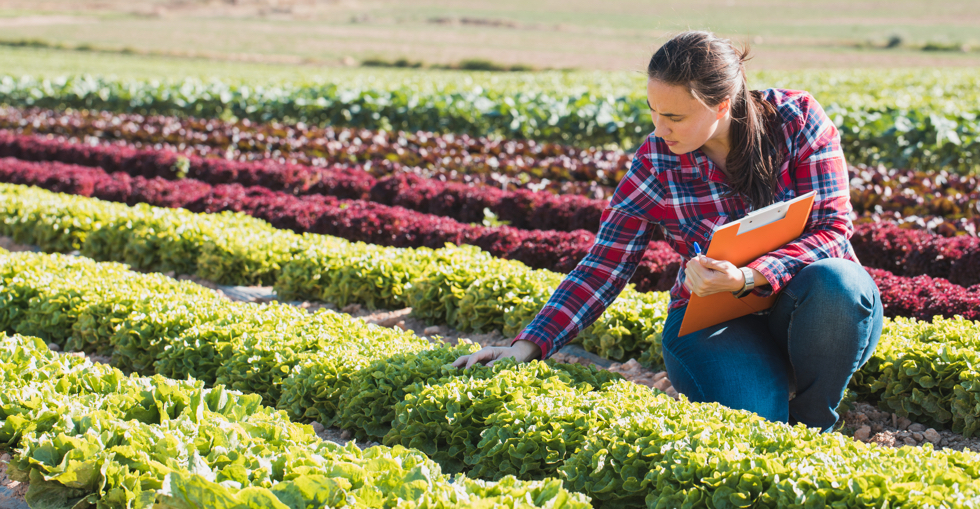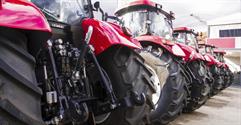Agricultural supply companies are the backbone of the multi-million dollar agribusiness. From seeds to saws, your supply company ensures farmers have all the tools of the trade to get the job done right.
To get the most out of your business, and ensure you’re outfitting the right demographic with the right tools, here are the top operational tips for agricultural supply companies — straight from the horse’s mouth.

Pick a business model
First, you will need to decide what “type” of supply store you will run. This might seem like an obvious decision at first — how many choices could there possibly be? But, it turns out that there are more business models than you might expect when it comes to running a farming supply business.
For example, cooperative supply stores have gained momentum in recent years. It is estimated that almost 2 million farmers belong to the over 2,000 farming supply co-ops operating today. Together, the top 100 largest farming co-ops bring in a combined annual revenue of $176 billion.
The co-op model is appealing to owner and customer alike for a number of reasons:
- Consistent customer base — Within this model, the customers are the owners. These businesses operate under a democratic model and therefore the “customer base” has a vested interest in the success of the business.
- Discounts — Within a co-op, surplus revenue is reinvested into the company to offer competitive prices. Rather than lining the pockets of investors, these businesses use profit as an opportunity to better serve their members.
- Community — A guiding principle of co-op management is community. These businesses are a rare example in the modern age of a group of individuals collaborating as one. Not only does this provide a sense of community within the co-op, but also motivates surrounding businesses to follow suit.
Whether you run a co-op, or a more traditional store, one fact remains true: inventory will make or break your business. At the end of the day your supplies will set you apart, and customers will quickly leave for competitors if you don’t carry what they need.

Focus on inventory
Farmers have a diversity of supply needs, and it’s your job to ensure they are sufficiently stocked. From animal feed to gardening tools, being a competitive farming supplier means carrying all the tools of the trade (and we do mean all).
You will be expected to have an extensive catalogue of equipment, feed, and tools. Fencing wire, chicken feed, workwear, gardening seeds, and much, much more — one of your greatest challenges will be housing and managing an extensive, eclectic inventory. Variety is the name of the game, and in order to be competitive your farm supply store needs to be a one-stop shop for all things agriculture.
Of course, a warehouse of supplies isn’t worth much unless you have a robust customer base to support it. Which brings us to the next point...
Research customer demographics
Controlling the fate of your business starts with knowing your customers. Start by contacting your local chamber of commerce for local area demographics. This information will offer baseline information on who is operating in the area and at what price range.
Next, do some research on the local market and professional culture. Things to know include specialty crops, average yield, weather conditions, etc. Insights of this nature will help you better serve the specific needs of your clientele and ensure they have the supplies they need for their particular operations.
There are two easy ways to obtain the above information. First, research nearby competitors and their offerings. Use their practices as a compass — if they have operated in the area long enough that means they are doing something right and something you can replicate. Also, contact the state’s Agricultural Department. This office can offer insight into how local farms operate and help identify emerging market trends that might inform your offerings.

Settle business logistics
Like any entrepreneurial pursuit, the key to success is to surround yourself with the right people. Your veritable varsity team should consist of, but not be limited to, the following professionals:
- Accountant — Preferably someone with experience in retail and/or farming. They can help determine the most beneficial filing: sole proprietorship, LLC, corporation, etc.
- Commercial insurance agent — You and your staff will be handling a variety of chemicals, equipment, and heavy machinery, so protecting yourself with adequate risk protection is essential in this line of work.
- Staffing — Staff your supply store with a diversity of employees who possess a variety of talents. Try to employ an expert in each major department. Have a go-to person for livestock feed, home improvement, gardening, etc. so you can call on them to acutely serve customer needs. Your store is only as good as the sum total of your employees, so staff strategically.
Follow the above operational tips to sow the seeds of success and help grow your agricultural supply company into something sustainable.



